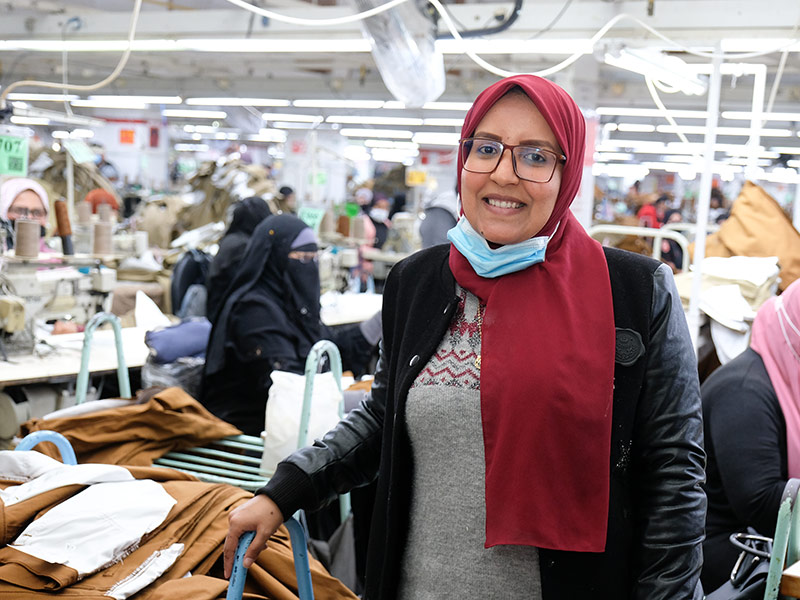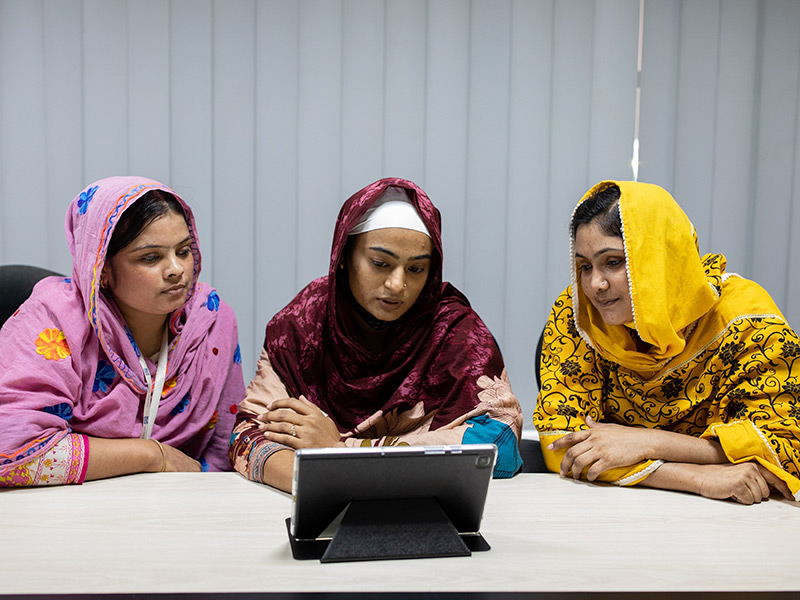
Photo credit: Jonathan Torgovnik/Getty Images Reportage, Images of Empowerment
According to the United Nations, gender inequality costs the region of sub-Saharan Africa an average of US$95 billion a year. By eliminating gender inequality and empowering women, the productive capacity of one billion Africans could be raised, delivering a huge boost to the continent’s development potential.
When women achieve their full potential at work and in other aspects of their lives, women and communities are not the only ones that benefit—gender equality is also good for business. And the important role that business plays in the lives of women, directly and indirectly, means that the private sector is uniquely positioned to strengthen women’s economic empowerment—and can and should go beyond simply offering a woman a job.
To advance empowerment, companies should act in the areas under their direct control; enable by supporting, incentivizing and investing in others; and use their influence by advocating and sharing expertise to enhance women’s economic opportunities and empowerment. In BSR’s new report “Women’s Economic Empowerment in Sub-Saharan Africa: Recommendations for Business Action” and three accompanying briefs for the apparel, mining, and mobile telecommunications industries, we have prioritized the areas in which companies are likely to have the greatest impact on advancing women’s economic empowerment. We also provide companies with practical guidance on how they can play a more significant role in making women’s economic empowerment a reality and critical insight into the specific barriers holding women back in sub-Saharan Africa.
Through our research, we found three main trends that informed our analysis.
- Women in the workforce, regardless of industry, face common challenges. These challenges include the need for additional education and training for career progression, a lack of female role models, the absence of decent childcare options and maternity leave, and risks to their personal safety. Although some women have made it into senior business roles, women are more frequently found in lower-paying, vulnerable jobs, which exacerbates many of the challenges above. These commonalities mean that companies across industries can share and learn about these challenges and how to tackle them.
- It will take much more than a job to economically empower women. Women are already very active economic participants in sub-Saharan Africa, but their contributions are not always recognized, rewarded, or encouraged. Women, particularly if they are from low-income households, face a range of systemic barriers, including entrenched poverty; poor access to housing, finance, and health services; and social norms that dictate “acceptable” jobs for women and force women to take on a heavier share of domestic responsibilities. Therefore, companies need to go beyond a narrow focus on economic participation to instead identify ways that they can shift cultural norms and societal expectations, improve infrastructure, and strengthen governance systems that can support greater access to information, services, and opportunities for women.
- To address systemic challenges, companies will need local and global partners. These partnerships should include local grassroots women’s organizations, development finance institutions, local governments, public health care providers, and industry peers. Companies will need to consider all the ways they can drive change as employers, business partners, and influencers in the wider economy. For example, companies can advocate that governments remove laws restricting women’s land ownership, or they can channel funds into programs that support women’s education and entrepreneurship. Companies can use their convening power to bring together local organizations or industry peers to share best practices and develop a common vision for gender equality for workers or other women engaged in their value chain.
Unlocking the full potential of women could have a transformative impact on families, communities, and entire economies, with significant benefits to business. However, the challenges facing women are complex, and tackling them will require significant commitment and investment by all sectors of society. The private sector cannot and should not wait for governments, NGOs, and development agencies: It should take action now in its operations and by enabling and influencing others to advance women’s economic empowerment in sub-Saharan Africa.
Read our new report and accompanying briefs for the apparel, mining, and mobile telecommunications industries.
Topics
Let’s talk about how BSR can help you to transform your business and achieve your sustainability goals.








